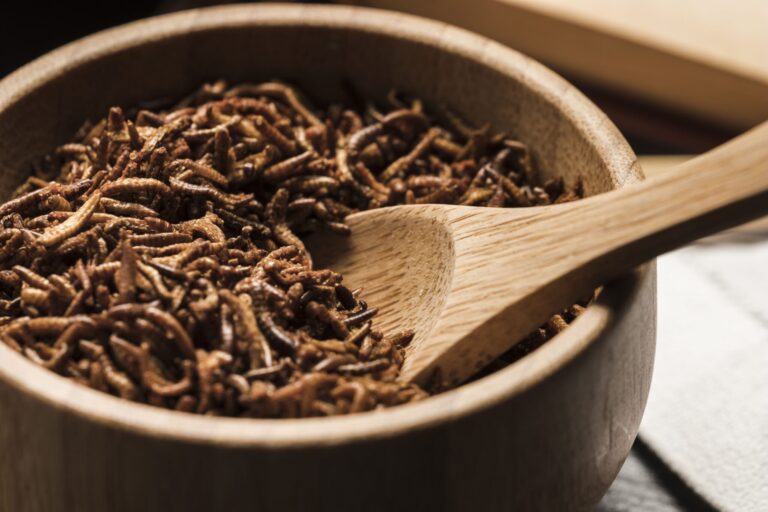
The world needs health alternatives for its own survival and edible insects may be the next big thing!
Edible insects are being suggested as a healthy alternative for a meat-loving global population. The insect-based food items offer nutritious benefits and help the environment by reducing emissions from traditional farming methods.
The world’s population is estimated to reach 9.8 billion by 2050. It is simply not sustainable to keep producing the same way for an ever-increasing global population. Farming and food production will have to evolve as we look for more efficient methods and less environmentally harmful policies.
Traditional farming will not be able to keep up with the rate of population growth. Grazing cows, sheep and other cattle on such a large scale has a massive detrimental effect on the planet.
Did you know? If a family of 4 switched to an insect protein meal once a week, an estimated 650,000 litres of water a year could be saved. It isn’t just water that is saved with insect farming; traditional farming requires 30% of the earth’s entire land surface for pasture and another 30% for production. The UN also estimates that livestock farming contributes about 18% of total greenhouse gas levels.
The world needs healthy alternatives for its own survival and edible insects may be the next big thing!
Modern day examples
Israeli food tech firm Hargol uses grasshoppers, particularly the locust type, to make little gummies. These gummies are packed with protein from locusts. Hargol goes on to say that grasshoppers taste like pecans, mushrooms, coffee and chocolate. The food tech firm values these flavours but also offers gummies in orange and strawberry flavours.
Hargol states that because it takes just 29 days for a locust to become fully grown, they can breed over 400 million locusts a year. They also state that when compared with beef production, locust farming reduces greenhouse gas emissions by 99%, water consumption by 1000 times and land usage 1,500-fold. The environmental benefits here are very clear to see. Whether or not this is enough to make you forget about the nature of your food, is still up for debate.
Ynsect is a French company that uses mealworms to make protein powder. The protein from mealworms doesn’t need to be processed as much as the protein from meats. This means it is completely natural.
In the UK, you can purchase edible insects from online outlets like EatGrub and Horizon Insects. Horizon Insects was born following a visit to a cricket farm in Thailand where they were served beer with a side of crunchy insects. They now offer large bags of crunchy crickets, edible locusts, cricket powder and even fresh insects.
The EU is also adopting the newest strand of the food industry, having just labelled locusts and mealworms fit for human consumption at the start of 2021.
Edible Insects in History
In the 1950s, Israel suffered from famine, food insecurity and locust swarms destroying crops. However, Yemenite and Moroccan Jewish people would collect tons of grasshoppers in order to eat.
Other communities in Africa, Asia, Australia, New Zealand, Central America and the Middle East have included insects in the food system for centuries. It is, however, a foreign and unimaginable concept for much of Europe and North America.
There is evidence, in the form of cave paintings, in the US and Mexico that our ancestors would turn to ants, beetles and grasshoppers for nutrition when needed.
Furthermore, in the Shanxi Province ruins in China, 2000 year-old communities gorged on wild silkworms directly from the cocoon.
Potential issues with edible insects
Whilst we have decades of information and evidence of the nature of traditional food production, the farming of insects is a relatively new venture. As a result, we do not know what insect proteins could actually be allergenic to sections of the population.
Furthermore, there simply hasn’t been enough time, or a large enough sample size, to ascertain whether edible insects have an impact on the human microbiome – essentially, we don’t have a lot of data on how the eating insects will affect the bacteria inside our bodies.
‘The Yuck Factor’ is the biggest issue with edible insects. Food tech firms are working hard on their messaging and environmentalism. But will they be able to break ‘the yuck factor’ and become mainstream? To vault this obstacle may take more time rather than an active persuasion campaigns.
Can food tech firms conquer ‘The Yuck Factor’ and forge a new mainstream industry?


